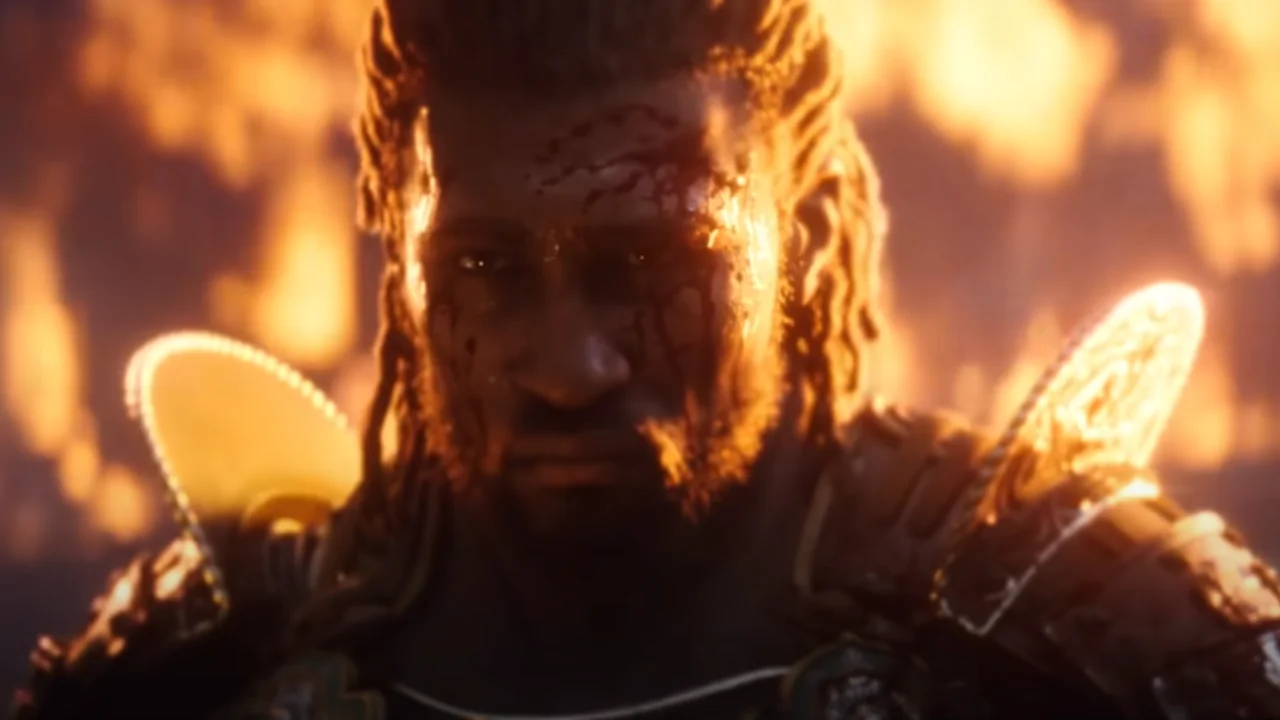
It appears that Ubisoft, once a dominant force in the video game industry, may be nearing its end. Despite the new year, there are increasing indications of decline, possibly leading to bankruptcy before the launch of ‘Assassin’s Creed Shadows‘.
In our last piece, we drew attention to Ubisoft’s poor credit score, stemming from concerning financial indicators like a staggering net debt of €1.4 billion, a significant drop in market value by more than 85% over the past four years, and an excessively large workforce of approximately 18,666 employees, equating to an annual wage bill of around €746.6 million.
These indicators painted a bleak picture of a company teetering on the edge of financial ruin.
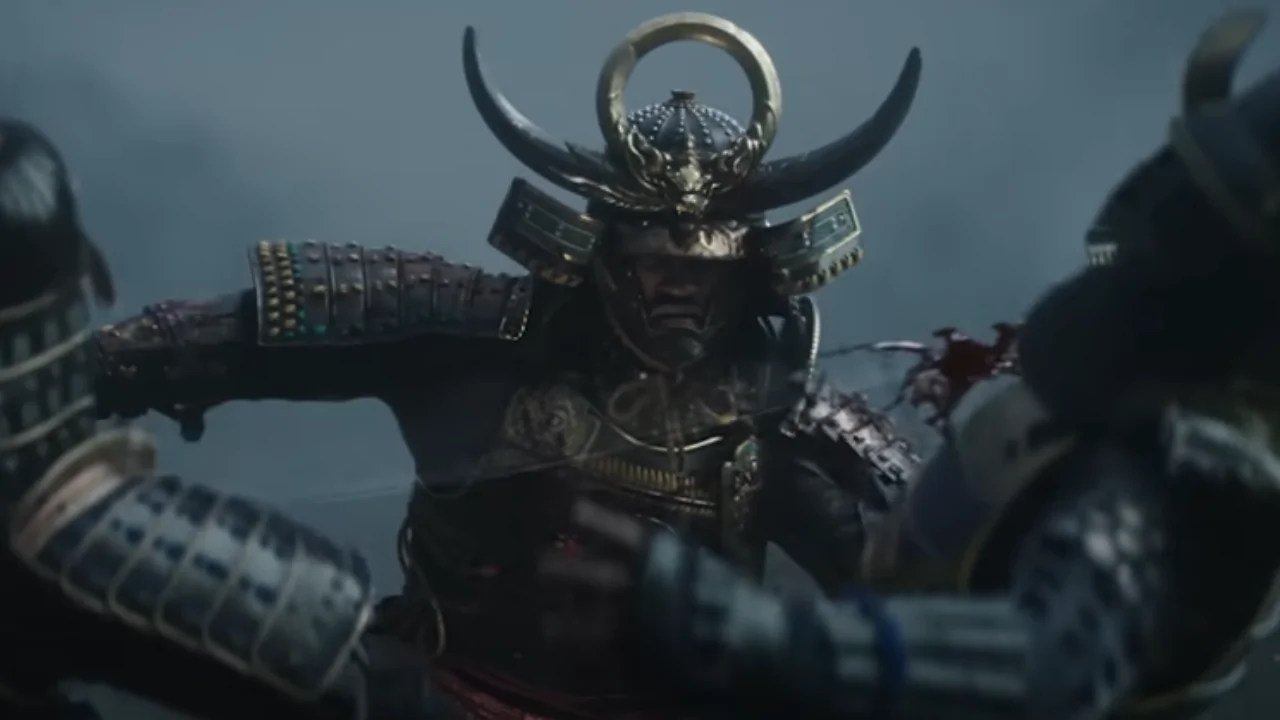
On January 9th, 2025, Ubisoft disclosed they have brought in top consultants to explore and implement potential strategic and financial changes aimed at maximizing benefits for shareholders, which they referred to as “realizing the highest value for stakeholders.
What does this mean?
It appears from official statements that Ubisoft has taken on consultants to rectify their strategic errors of late. Yet, in reality, this action seems to be a part of a larger scheme: preparing the company for asset sales, such as iconic franchises like Assassin’s Creed, Far Cry, and Rainbow Six, streaming rights, or other valuable properties, potentially leading the company towards financial difficulties, if not bankruptcy.

Following another postponement, “Assassin’s Creed Shadows” has been moved from February to March. This delay, combined with a drop in sales for “Star Wars Outlaws” and the cancellation of “XDefiant”, suggests that Ubisoft’s financial struggles are more severe than initially thought.
Could this be the end for Ubisoft, not even one month into 2025?
Initially, let’s discuss the potential reasons behind this action that could indicate Ubisoft is on the verge of filing for bankruptcy or considering a complete sale.
A Historical Precedent
In 2012, when THQ declared bankruptcy, it had previously taken a step that was indicative of its ultimate demise.
Similar to Ubisoft, THQ had a clear understanding of its actions and their intended audience. Just as a common practice for companies on the brink of mergers or asset sales, appointing top advisors to investigate “transformative strategic options” is standard procedure. For Ubisoft, this announcement, like THQ’s, signals to investors that the company is adhering to all legal and regulatory requirements before executing significant changes. These alterations might potentially bring advantage to some stakeholders but may also put others at a disadvantage.

It seems quite possible that Ubisoft could be on the brink of bankruptcy, as their recent announcement shares striking similarities with strategies employed by companies just prior to their court-ordered takeovers during financial crises, such as THQ, Atari, and Midway Games. These maneuvers are usually aimed at preserving some level of control and readying stakeholders for the approaching restructuring.
It appears Ubisoft might be trying to hide something, given their recent cost-cutting announcements and the sale of assets, which could only delay the inevitable. These moves could make Ubisoft seem more appealing to potential buyers, but they won’t significantly alter its course due to the company’s escalating debt. It seems bankruptcy courts may be gearing up to manage Ubisoft’s descent into financial difficulty.

As a movie buff, I’d say it seems quite plausible that these high-profile consultants are being brought on board to find the optimal solution for Ubisoft’s predicament, as their own announcement suggests. This could mean striking a balance between minimizing losses for key investors and offering attractive severance packages to executives. In fact, if history is any guide, this pattern was seen in the case of THQ’s bankruptcy, where top execs walked away with hefty payouts even as the company crumbled.
In simpler terms, the €200 million cost-cutting measure might actually serve as a sort of ‘war chest’ to provide generous severance deals during the potential bankruptcy.
As a concerned moviegoer peering into the unfolding drama at Ubisoft, I can’t help but feel a chill of apprehension. With nearly 18,000 talented individuals still on the payroll, the absence of an immediate announcement for significant downsizing leaves me uneasy. The potential outcome is grim: many hardworking souls might find themselves entitled to severance packages before the company’s curtains close.
However, it seems that a more probable scenario lies ahead, where the majority of employees are left with mere crumbs while top executives glide gracefully away with their “golden parachutes.” It’s a bitter pill to swallow in this day and age, but unfortunately, it appears to be the harsh reality we face.
Low Pre-Orders and Rising Debt: The Warning Signs Behind Shadows’ Delay”
One indication suggesting this could be true is the postponement of “Assassin’s Creed Shadows” from February to March.
What’s the significance here? It indicates a doubt in the product’s quality, and furthermore, the unexpected delay announcement occurred on the very day that the advisors’ appointments were set to be disclosed publicly. This implies that the pre-orders for Shadows might have been so low that Ubisoft had already foreseen that the game wouldn’t be enough to prevent them from accumulating financial difficulties.

Reflecting on the disappointing sales of Star Wars Outlaws and the termination of XDefiant, it’s projected that Ubisoft required Assassin’s Creed Shadows to earn at least 1 billion euros in revenue. This amount, a feat only accomplished by very few games within such a brief period, would have been crucial for their survival. They needed this income to secure more credit and temporarily handle their debts.
However, Ubisoft’s actions indicate that the numbers aren’t showing this potential.
If the pre-order numbers for Assassin’s Creed Shadows were strong and unwavering, perhaps this delay wouldn’t have taken place. Delaying a significant launch can erode investor trust and influence stock prices—things Ubisoft cannot risk undermining at this moment. However, the delay has been announced, which suggests that internal issues are escalating within the company and that it may be bracing for an upcoming downfall.

In our recent post, we predicted that Ubisoft’s credit standing was at CCC – a dismal rating suggesting bankruptcy is imminent if significant adjustments aren’t made. Potential adjustments could involve layoffs, asset liquidation, game cancellations, and extensive operational reorganization. Instead, it appears Ubisoft may be leaning towards embracing bankruptcy rather than implementing these changes that could have given the company a stronger position for recovery.
Why is that?
It appears that Ubisoft’s struggle may stem from overwhelming debt, as they find no viable solution to balance their obligations without introducing new successful products. This predicament has led them into a loop of poor performance, as they’re unable to earn enough profit to switch from operating at a loss to profit. Consequently, it seems prudent for them to focus on stabilizing their operations temporarily, providing some breathing room during the transition towards filing for bankruptcy proceedings.
Buyout, Bankruptcy, or Bust: Ubisoft’s Slim Chances for Recovery
But let’s explore whether Ubisoft could still save itself.
If we assume Ubisoft is not actually preparing for bankruptcy—what are its options?

It’s possible that Ubisoft will opt for a buyout or asset sale next, but selling off assets wouldn’t be enough to pay off its debt. Currently, Ubisoft is valued at approximately $1.6 billion. This value is so high that it’s unlikely Ubisoft could sell the entire Assassin’s Creed franchise for even close to $1.6 billion. Instead, a potential buyer might choose to acquire the whole company for the same price.
Picture this: A company that used to rake in billions is now appraised lower than the revenue it generated when Assassin’s Creed Valhalla was launched, primarily because of Ubisoft’s financial turmoil.
Due to its heavy debt burden, Ubisoft might find it necessary to part with some of its highly profitable series like Assassin’s Creed, but at a significantly reduced cost. Selling assets, however, is not an attractive solution because any other assets on offer would be perceived as less valuable than the price needed to keep Ubisoft financially stable, making them less appealing to potential buyers.
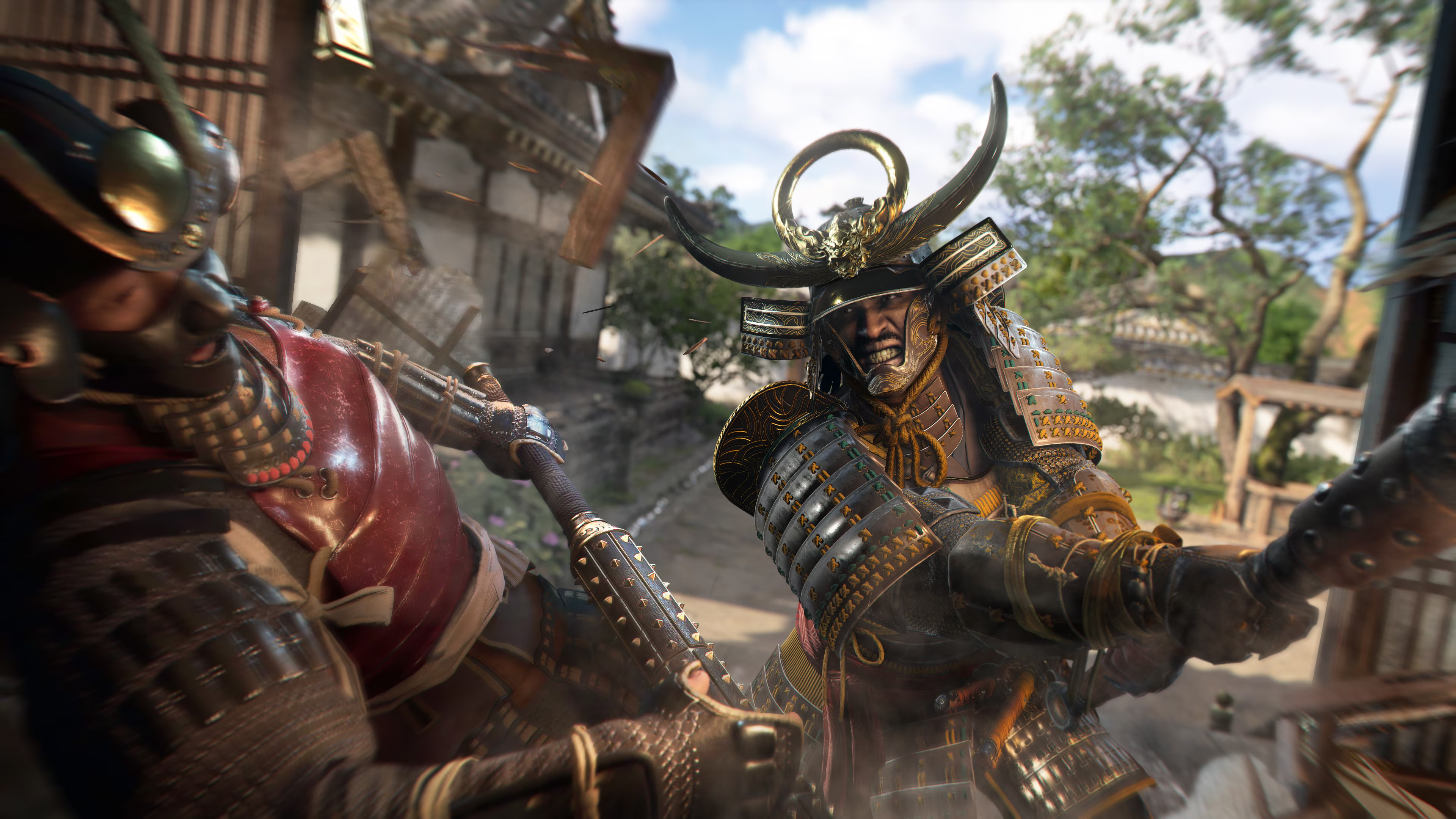
Essentially, if Ubisoft were to sell its assets, it wouldn’t have enough resources left to produce a game that could help turn its financial losses around. The company’s current low stock price and undervalued status are like a cage, restricting Ubisoft from easily escaping its predicament.
To put it another way, suppose a chicken lays expensive eggs, but the farmer can only sell the chicken for a low price due to his debt. In such a situation, a shrewd buyer would choose to buy the chicken instead. This is the predicament Ubisoft finds itself in, and Tencent, being an investor of Ubisoft who might be planning a takeover, certainly recognizes this.
As a film enthusiast, I’ve been keeping an ear to the ground about the persistent rumors of a potential Tencent buyout. Yet, as we discussed in our last piece, it seems wiser for Tencent to let Ubisoft face bankruptcy proceedings instead. This way, they could secure Ubisoft’s intellectual properties at auction without shouldering its existing debt. It’s like buying a beautiful old mansion, but leaving the crumbling foundation for someone else to fix.
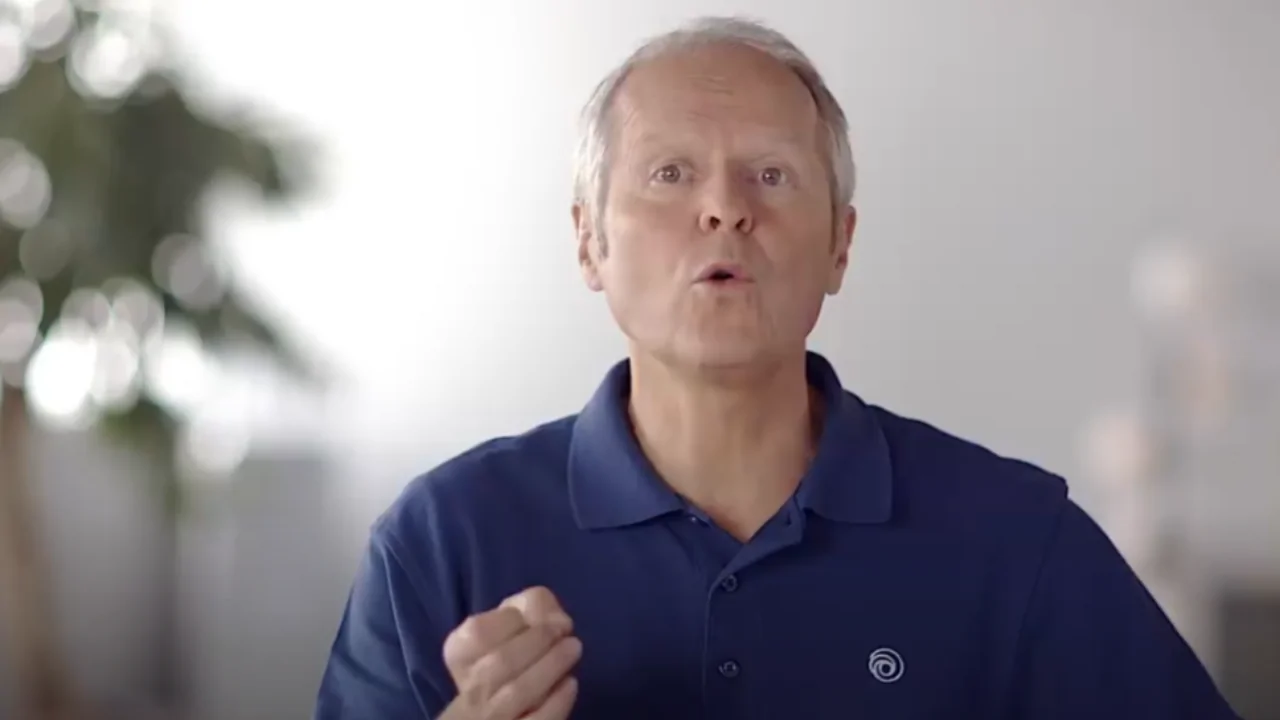
So, what other options does Ubisoft have?
In simpler terms, it might be suggested to consider downsizing and reorganization, but unfortunately, it’s probably too late for such measures to have immediate financial benefits. With over 18,000 employees, a comprehensive restructuring and layoff plan could take up to two years to show results. However, Ubisoft’s growing debt and poor credit standing make it challenging to secure the long-term financial stability necessary for such strategies.
From my perspective as a movie critic, it’s clear that Ubisoft’s current situation could potentially dampen investor trust even more. With just one forthcoming production, “Assassin’s Creed Shadows,” on the horizon, there’s a sense that this might not be enough to captivate the gaming audience. Unfortunately, the anticipation for this title appears to fall short of expectations.
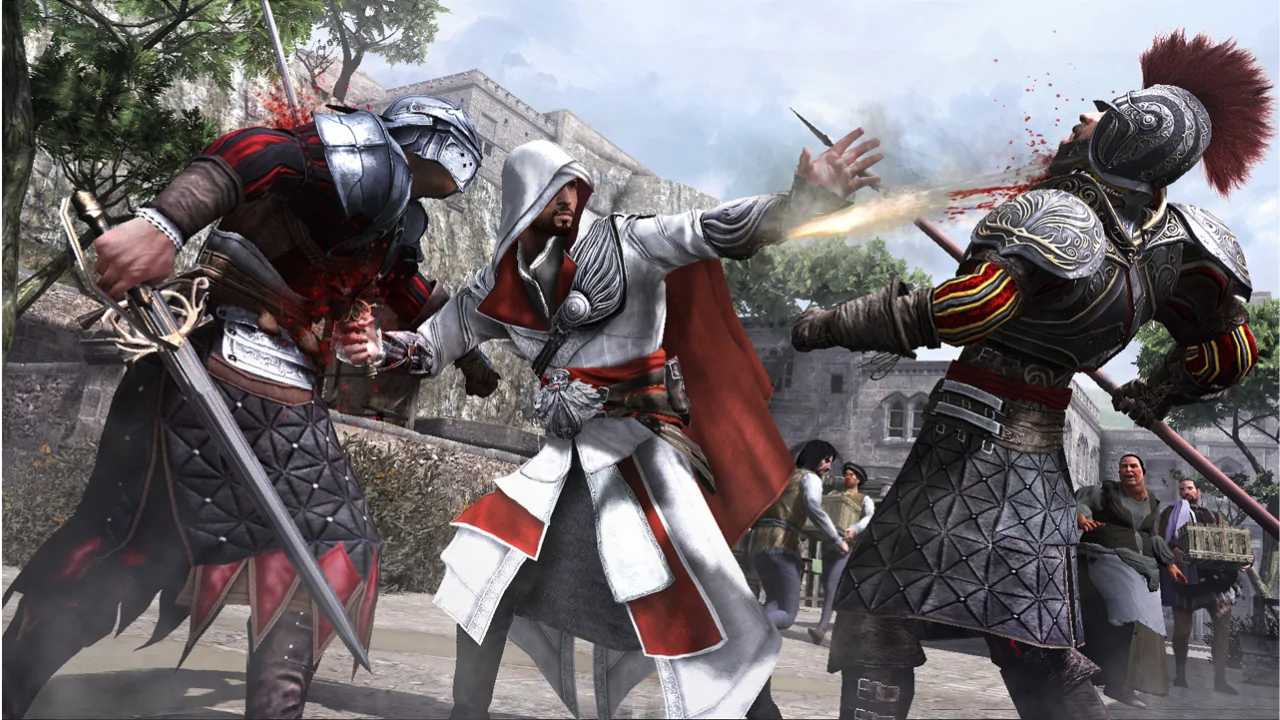
How about a buyout?
As a movie buff, I’m always on the lookout for potential blockbusters in the gaming world. So, if I were to speculate, could Tencent or another big player like it snatch up Ubisoft? Well, with a valuation of $1.6 billion, Tencent certainly has the funds. But let’s not forget that they’d be taking on quite a cast and crew – 18,000 employees! Not to mention, they’d inherit Ubisoft’s debts and obligations like the financial commitments tied to Skull & Bones with the Singaporean government or other undisclosed liabilities. It would be a massive undertaking, but who knows? Maybe this could be the plot twist that sets the stage for a new era of gaming!
Instead of firing workers after acquiring Ubisoft, Tencent might find that assuming such obligations could outweigh the potential advantages. It may be more appealing for Tencent to wait until Ubisoft files for bankruptcy, at which point they could bid on prominent franchises during an auction without bearing these extra costs.
In this type of situation, it’s likely that Tencent will encounter competition from other businesses when trying to acquire these assets. However, the financial risks and expenses associated with purchasing Ubisoft directly would be significantly higher compared to the costs incurred while competing for these assets.

It appears that we are predicting three possible scenarios for Ubisoft: a 60% likelihood of pursuing bankruptcy, a 30% chance of undergoing an acquisition or merger, and just a 10% possibility of restructuring without declaring bankruptcy. This year might be the end of the road for Ubisoft as it faces a series of challenges, starting with trouble in January, gradually worsening through March, and potentially reaching a critical point by June or July, which could see the initiation of bankruptcy proceedings.
Read More
- Gaming News: Why Kingdom Come Deliverance II is Winning Hearts – A Reader’s Review
- We Ranked All of Gilmore Girls Couples: From Worst to Best
- Jujutsu Kaisen Reveals New Gojo and Geto Image That Will Break Your Heart Before the Movie!
- Why Tina Fey’s Netflix Show The Four Seasons Is a Must-Watch Remake of a Classic Romcom
- How to Get to Frostcrag Spire in Oblivion Remastered
- Assassin’s Creed Shadows is Currently at About 300,000 Pre-Orders – Rumor
- How Michael Saylor Plans to Create a Bitcoin Empire Bigger Than Your Wildest Dreams
- Is the HP OMEN 35L the Ultimate Gaming PC You’ve Been Waiting For?
- Whale That Sold TRUMP Coins Now Regrets It, Pays Double to Buy Back
- S.T.A.L.K.E.R. 2 Major Patch 1.2 offer 1700 improvements
2025-01-10 17:55